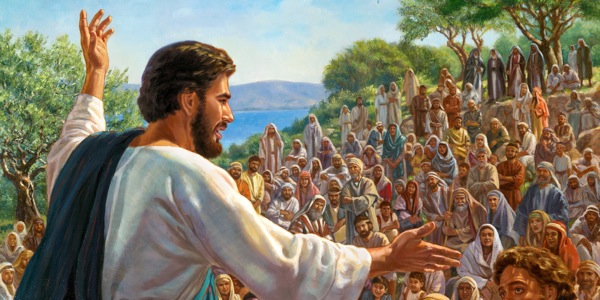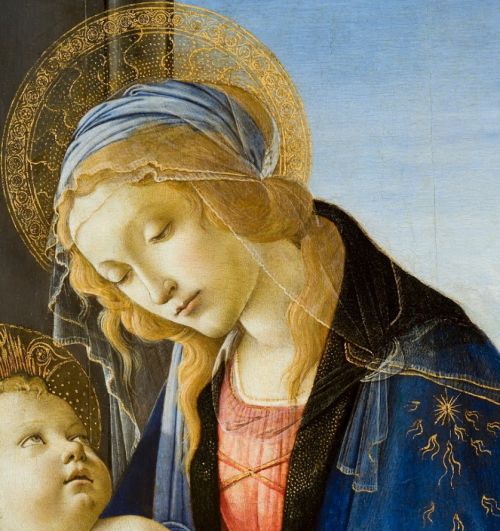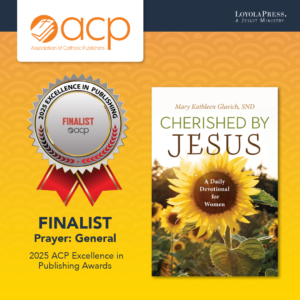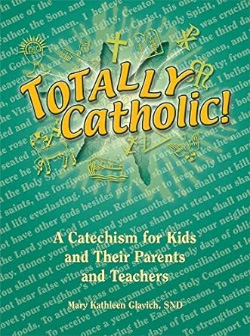
Every day I pray the Our Father in the Rosary and in Morning and Evening Prayer in the Divine Office, and (before COVID) at Mass. Often I glide over the words unconscious of what I am saying. St. Teresa of Avila taught that slowly and reflectively praying this prayer and the Hail Mary are sufficient ways to pray. It is a Church treasure that is presented to the elect in the RCIA program during the fifth week of Lent. The Lord’s Prayer is the quintessential prayer because Jesus gave it to us. So let’s unpack it a bit here.
Our: We address God as “our” Father, not “my” Father. We acknowledge that God is the Creator of all people. We are one person in the whole human race. We pray as a member of a community. Our Father is also the Father of Jesus, the Son.
Father: We could call on God as the Omnipotent One, the Supreme Being, the Utterly Other, and the like. But Jesus told us to call God by an intimate, personal name, the name he used for God. Like earthly fathers, God the Father is the source of our being. He loves us, his children who he made in his image and likeness. God takes care of us, protects us, and provides what we need to survive. He’s given us a glorious planet as a home.
Who art in Heaven: God exists in another dimension. He is invisible. Heaven is wherever God is. Being with him was our reason for existing in the first place, and now, thanks to Jesus, it is our ultimate destiny.
Hallowed be thy Name: Hallowed is an obsolete way of saying holy. To me, it has more impact than “holy.” A name is a substitute for a person. That is why mocking a name is so insulting. To declare that God’s name is holy is to acknowledge that God is all-good and all-loving.
Thy kingdom come: Now here is a wish that is especially relevant today in our earthly world in so much turmoil. God’s kingdom is one of justice and love where everyone lives in peace. We pray that we soon experience it.
Thy will be done on earth as it is in heaven: God reigns in heaven where peace prevails. We surely hope that people on earth live by the God-given commandments, especially the greatest ones: Love God and your neighbors. They are the key to experiencing peace within ourselves, our nation, and the world.
Give us this day our daily bread: We ask God to sustain us with food, keeping in mind those brothers and sisters of ours who are starving. We also ask for the heavenly Bread of the Eucharist that many of us have been deprived us during this pandemic.
And forgive us our trespasses as we forgive those who trespass against us: This is a risky petition. We limit God’s mercy by asking for forgiveness to the extent that we forgive others who harm us.
And lead us not into temptation: Of course, God doesn’t lead us to temptation. In 2017, Pope Francis approved this wording: “Do not let us fall into temptation.”
But deliver us from evil: We ask our good Father to save us from all forms of evil. Primarily these are Satan’s attacks but include things like natural disasters, accidents, sickness, and slander.
The Catechism of the Catholic Church concludes with an explanation of this prayer far more extensive than mine here. It calls the Our Father “the summary of the whole Gospel.”
• How would you reflect on one of these phrases from the Our Father?









2 Responses
Hi Sister
Love your explanation of the Our Father.
One of my favorite prayers. Lately, it seems i put a lot of emphasis on “deliver us from evil”….. as it seems like the devil has a hold on our Country!!
Sooo many killings every day!!! 😢
We need to keep asking our Lord, Blessed Mother and our Angels to watch over us.
Thanks for your blog.
Sue
Yes, we are living in challenging times, Sue. Makes me long for heavenly “peace.”